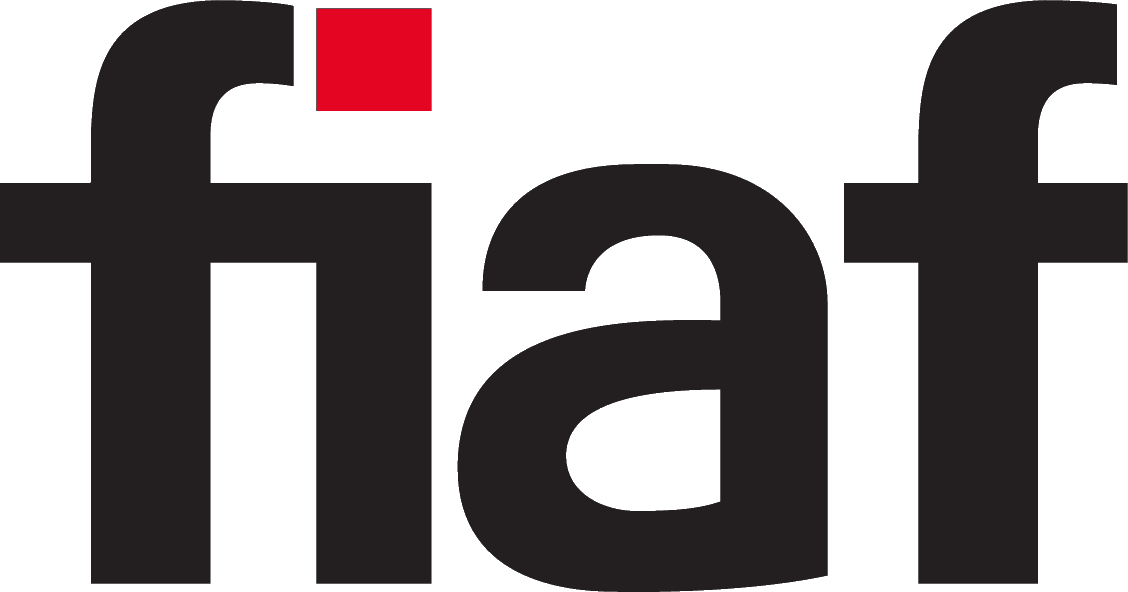
FIAF Code of Ethics
Should you want to print the FIAF Code of Ethics, a PDF version is available HERE.
You can also order hard copies by emailing the FIAF Secretariat.
La version en français est disponible ici.
La versión en español está disponible aquí.
Note that discussions were initiated in early 2022 to decide whether the FIAF Code of Ethics should be revised. Find out more about this project and how to get involved HERE.
Preamble:
Film archives and film archivists are the guardians of the world’s moving image heritage. It is their responsibility to protect that heritage and to pass it on to posterity in the best possible condition and as the truest possible representation of the work of its creators.
Film archives owe a duty of respect to the original materials in their care for as long as those materials remain viable. When circumstances require that new materials be substituted for the originals, archives will respect the format of those originals.
Film archives recognise that their primary commitment is to preserve the materials in their care, and – provided always that such activity will not compromise this commitment – to make them permanently available for research, study, and public screening.
The following are specific statements of these general principles:
1. The Rights of Collections:
1.1. Archives will respect and safeguard the integrity of the materials in their care and protect them from any forms of manipulation, mutilation, falsification, or censorship.
1.2. Archives will not sacrifice the long-term survival of materials in their care in the interests of short-term exploitation. They will deny access rather than expose unique or master materials to the risks of projection or viewing if the materials are thereby endangered.
1.3. Archives will store materials, especially original or preservation master materials, in the best conditions available to them. If those conditions fall short of the optimum, archives will strive to secure better facilities.
1.4. When copying materials for preservation purposes, archives will not edit or distort the nature of the work being copied. Within the technical possibilities available, new preservation copies shall become accurate replicas of the source materials. The processes involved in generating the copies, and the technical and aesthetic choices which have been taken, will be faithfully and fully documented.
1.5. When restoring materials, archives will endeavour only to complete what is incomplete and to remove the accretions of time, wear, and misinformation. They will not seek to change or distort the nature of the original materials or the intentions of their creators.
1.6. When providing access to materials by programming, projection, or other means, archives will seek to achieve the closest possible approximation to the original viewing experience, paying particular attention (for example) to the appropriate speed and the correct aspect ratio.
1.7. The nature and rationale of any debatable decision relating to restoration or presentation of archive materials will be recorded and made available to any audience or researcher.
1.8. Archives will not unnecessarily destroy materials even when they have been preserved or protected by copying. Where it is legally and administratively possible and safe to do so, they will continue to offer researchers access to nitrate viewing prints as long as the nitrate remains viable.
2. The Rights of Future Generations:
2.1. Mindful of their responsibility to preserve materials in perpetuity, archives will resist pressure to remove or to destroy materials already in their collections, or to refuse or accept materials on offer to their collections, for any reason outside their institutions’ declared preservation or selection policy.
3. Exploitation Rights:
3.1. Archives recognise that the materials in their care represent commercial as well as artistic property, and fully respect the owners of copyright and other commercial interests. Archives will not themselves engage in activities which violate or diminish those rights, and will try to prevent others from doing so.
3.2. Unless and until commercial rights in items from their collection shall have expired or been either legally annulled or formally vested in their institution, archives will not exploit those items for profit.
3.3. To accord with these principles, archives screening materials from their own collections will respect the following conditions:
- screenings will have a cultural or educational framework;
- screenings will not knowingly conflict with concurrent or imminent commercial exploitation of the same materials;
- screenings will take place within venues controlled or recognised by the archives’ institutions and directed to the principles set out in this Code;
- screenings will be non-profit-making (which is not to say that screenings will necessarily be free, but that where entry fees are charged, the income deriving from such fees will be demonstrably linked to the preservation and cultural mission of an archive, and not devoted to the commercial reward of any individual, group, or organisation).
3.4. Archives will not intentionally be party to transactions, whether relating to screenings, to acquisitions, or to any other use, which infringe the rights of others or which compromise the reputation and integrity of their staff, their institution, FIAF, or the film archive movement in general.
4. Rights of Colleagues:
4.1. Archives believe in the free sharing of knowledge and experience to aid the development and enlightenment of others and the development of the archival ideal. Their staff will act in a spirit of collaboration, not competition, with fellow archivists in their own and kindred institutions. Archivists will not knowingly be party to the dissemination of false or misleading information, and will not deliberately withhold information (except where the confidentiality of a third party is involved) relating to their collections or areas of expertise. [Examples of co-operation between archives and archivists may include the provision of information or materials to assist in programming, in the cataloguing of collection materials, or in the compilation of filmographies; the provision of information on holdings relevant to a colleague’s collecting policy, or assistance with the formulation of decisions on preservation or restoration work; the release of materials to assist in an active preservation or restoration project; the sharing of documentation to assist in works of scholarship, etc.]
4.2. Archives will not misuse information or materials supplied to them in the spirit of the co-operation described above. Unauthorised copying of another archive’s materials, unattributed or unacknowledged use of the results of another archive’s work or expertise, and breaches of confidentiality are deemed to be serious violations of professional standards.
4.3. Archives whose collections contain materials which originated in the collections of other archives will refer to the appropriate archive all questions relating to further use or exploitation of such materials, unless otherwise agreed by the parties involved. This courtesy should be extended to all colleague archives, whether such materials were acquired by direct transaction between the archives or have arrived by way of a third party, and whether the materials are held in their original form or embedded in a new usage (for example, as film included in a compilation programme).
4.4. Archives will not, without the permission of a relevant colleague or colleagues, attempt actively to pursue or to solicit films or collections held in another FIAF member archive’s country, either privately or institutionally, nor deal in any other way in the archival affairs of that country.
5. Personal Behaviour:
5.1. Archives will ensure that their staff do not indulge in activities which may compete or conflict with those of their institution or confuse outsiders as to the nature of their involvement in a given issue. For example, an archivist will not, without authorisation:
- build up a private collection of materials in areas overlapping with those collected by the institution;
- accept engagements as a speaker or author on behalf of their institution which are likely to result in personal profit;
- accept a financial interest in an organisation supplying goods or services to the institution or buying services from it (for example, a production company);
- align with or join a group the aims or activities of which may compete or conflict with those of the institution or FIAF.
5.2. When an archivist has the authorisation of the institution to engage in such activities, it must always be made clear to outsiders whether at any moment an action is being taken in a private or official capacity.
5.3. Archivists will not appropriate for personal purposes items or services from their institution except insofar as the internal rules of that institution permit.
5.4. Archives and archivists will be vigilant on behalf of the archival movement to ensure that the standards set out in this Code are rigorously followed and the good name of the movement is preserved. When they have evidence of violations of this Code, they will bring such evidence forward through the appropriate procedures as set out in FIAF’s Statutes and Rules.
5.5. While observation of the principles listed in this document may make it impossible always to provide full access to all materials and other resources, archives and their staff acknowledge that the public has the right to ask for such access, and is entitled to be treated with courtesy even when such access cannot be allowed.
5.6. Archives and their staff will respect the restrictions imposed on any information made available to them which carries a stipulation of confidentiality by someone from outside their institution.
Acknowledgements:
For its original inspiration, this document owes much to David Francis of the Library of Congress, Washington, DC, who in 1993 first suggested for the agenda of the Working Group on the Future of FIAF the ideas that FIAF should produce a Code of Ethics and that membership of FIAF should be determined by adherence to such a Code rather than by conformity to formal definitions incorporated in the published Statutes and Rules. For many of its practical precepts, this document is equally indebted to Ray Edmondson of the National Film and Sound Archive, Canberra, who throughout the 1990s has carried forward the project of the development of a Philosophy of Audio-Visual Archiving. Although neither was directly involved in writing this text, the influence of these two colleagues has been essential, and is gratefully acknowledged.
The FIAF Code of Ethics was first drafted and has subsequently been edited by Roger Smither of the Imperial War Museum Film and Video Archive, London, in his role as Secretary-General of FIAF. It has been refined through consultation with an ever-widening circle of FIAF colleagues. First, in 1995/96, the text was discussed with Hoos Blotkamp of the Nederlands Filmmuseum, Amsterdam, who was then head of the Working Group on the Future of FIAF, and with Gabrielle Claes of the Cinémathèque Royale, Brussels. Subsequently, in April 1997, the Code was considered in a “brain-storming” session by the whole Executive Committee of FIAF, and after presentation to the General Assembly in Cartagena, Colombia, suggestions for changes were received orally and in writing from the whole membership. The final text reflecting all these suggestions has been produced in partnership with Clyde Jeavons of the National Film and Television Archive, London.





